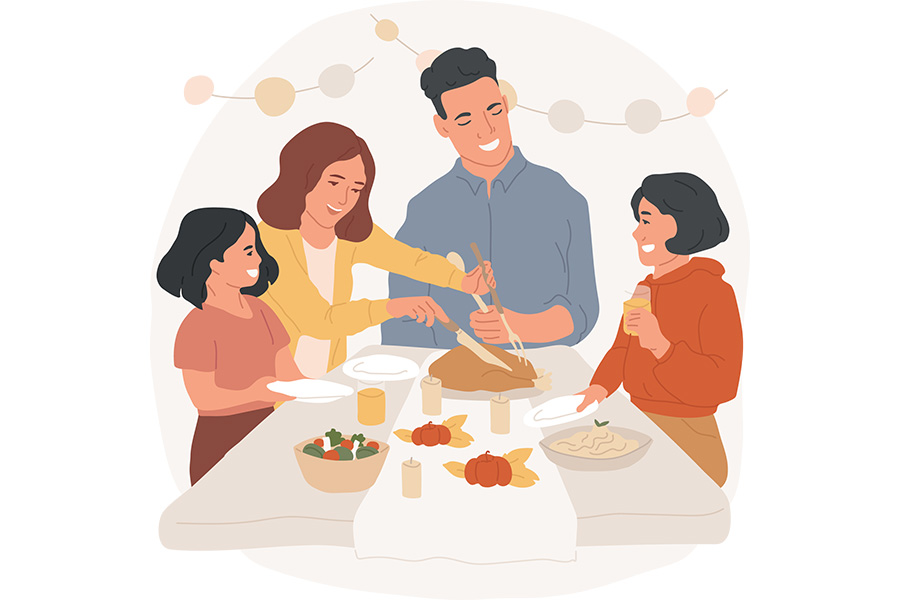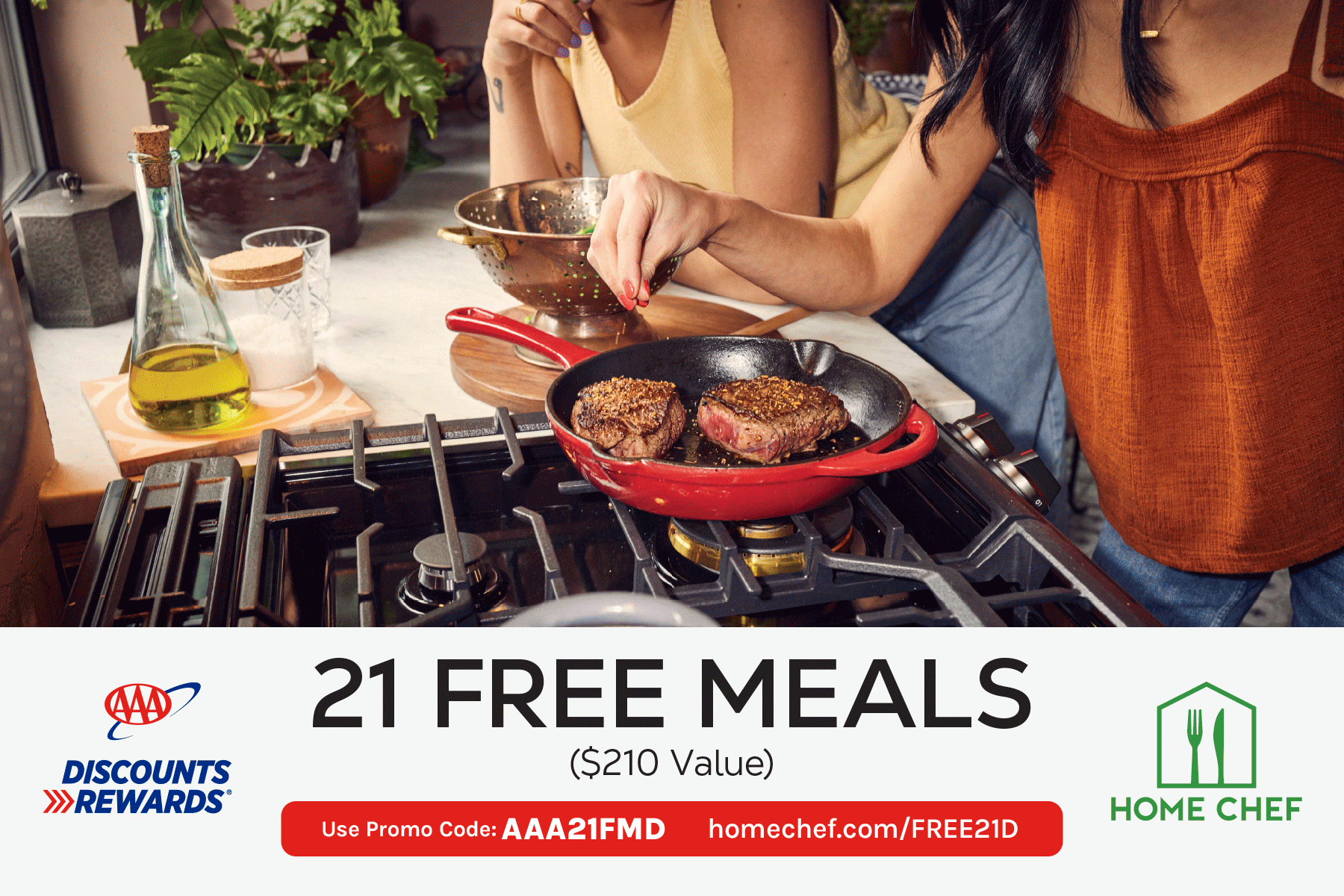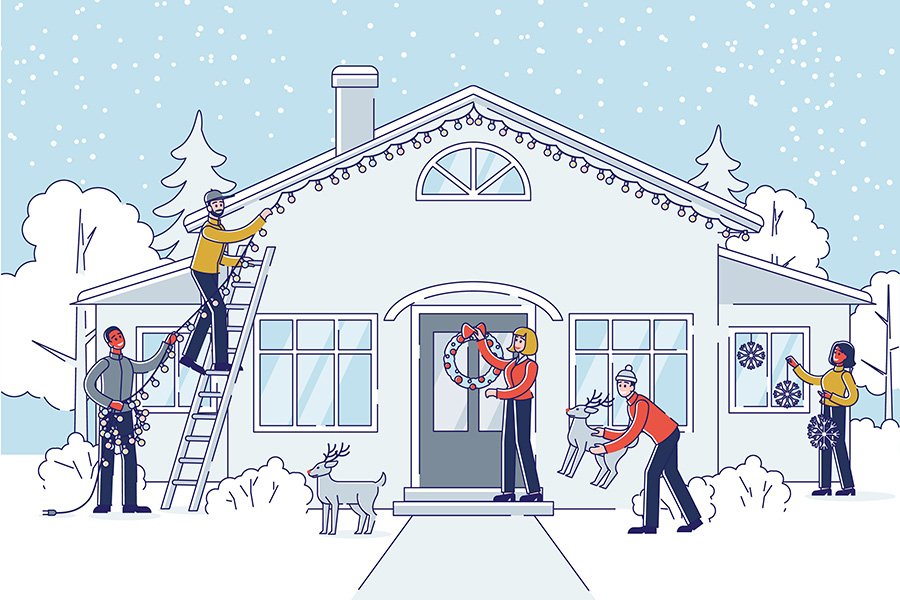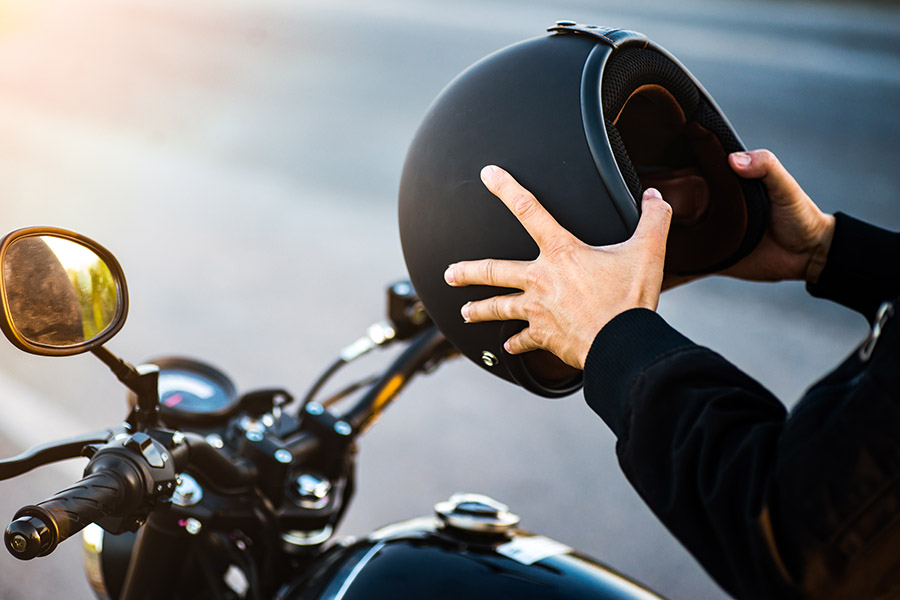Doggy Dos and Don’ts

Unsure which Thanksgiving eats are ok for your dog to enjoy?
Here’s a quick list of the safe and unsafe foods on your Turkey Day menu.
Your human family may not be the only ones enjoying an extra helping of their favorite Thanksgiving fare. Whether by accident or on purpose, it’s likely your dog will also join in on the feast. Though some foods are perfect for your pup to enjoy with the rest of your family, other eats are a definite no-go.
To help you keep your dog happy and healthy during your Thanksgiving celebrations, we created a list of which foods your pup can enjoy, and which should stay on the table.
Dog-Approved Foods and Spices
Here are the Thanksgiving goodies that are safe for your dog’s bowl:
Foods:
- Unseasoned, boneless turkey
- Carrots
- Cranberries
- Green beans
- Sweet potatoes
- Pumpkin (also great for a pups with an upset stomach)
- Raw apples
- Beets
Spices:
- Cinnamon (in small amounts)
- Mint
- Parsley
- Turmeric
- Ginger power
No-Go Foods and Spices
Here’s what to remove from your dog’s menu:
Foods:
- Grapes and raisins
- Onions
- Stuffing
- Mashed potatoes
- Gravy
- Macadamia nuts
- Sugar (Xylitol)
Spices
- Onion powder
- Garlic powder
- Nutmeg
- Salt
Before You Eat
Every dog’s body is different, which means sometimes safe foods can still cause problems. Before you feed your pet human food, consult with your vet to ensure it’s appropriate for your furry family.
Addressing Nosey Noses
Though you may not feed your pet harmful foods, some pups have a penchant for sniffing out unsafe snacks elsewhere. You can keep dangerous items away from wandering noses by monitoring trashcans, storing ingredients in cupboards, moving food away from counter-top edges, and asking friends and family to avoid feeding your dog.
Signs of a Sick Dog
Dropped plates, tempting trash, forgetful family -- sometimes dogs get a taste of dangerous foods anyway. Here are some common signs your pup may have ingested something they shouldn’t have:
- Lethargy
- Salivation
- Decreased appetite
- Excessive thirst or urination
- Uncontrollable shaking
- Weakness
- Diarrhea
- Vomiting
- Seizures
- Disorientation
- Coordination problems
If you notice any of these signs, keep your pet calm and call your vet (or an emergency clinic) right away. A vet can quickly identify the problem and provide safe solutions to the problem. Always avoid waiting to see if your dog gets better. Delaying treatment can sometimes make the issue worse.
AAA Pet Insurance
Care you can trust for the pets you love. Contact your AAA insurance agent or learn more online.






